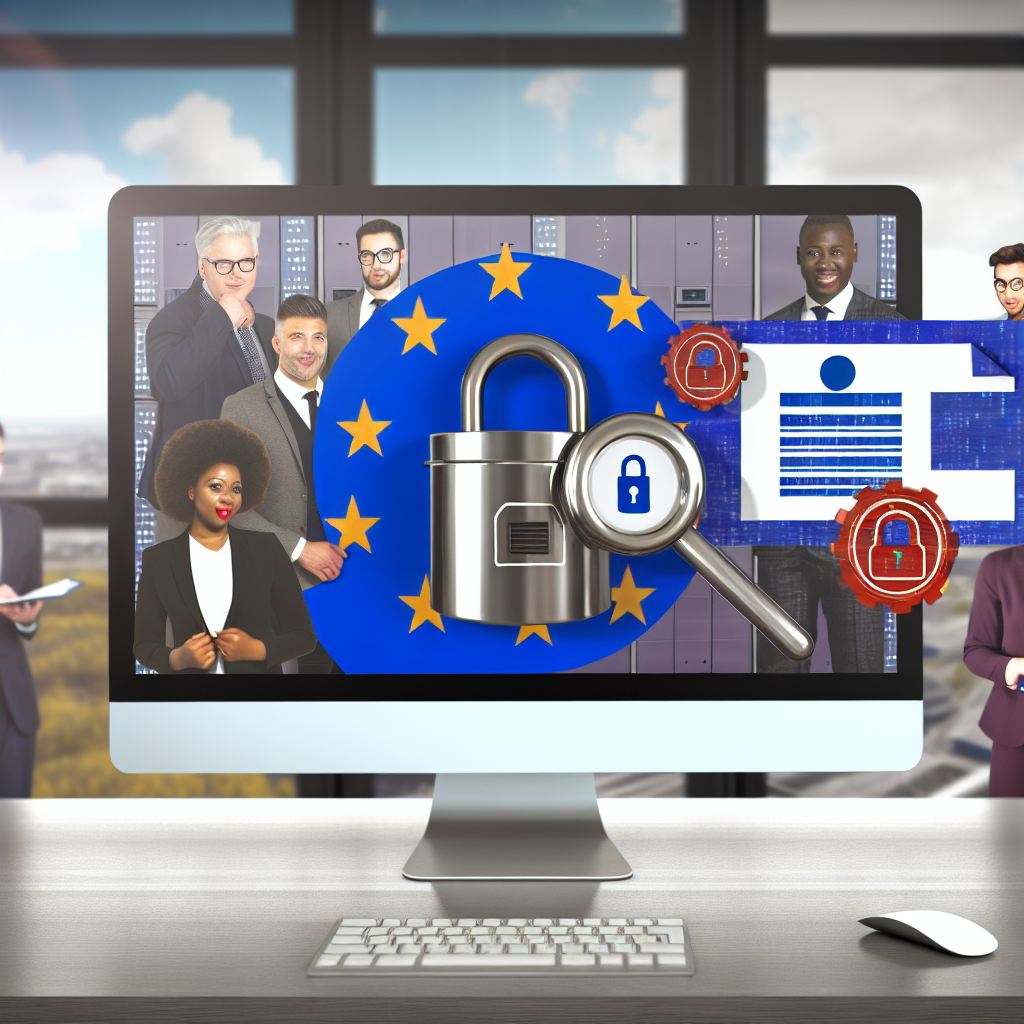
Ensuring GDPR compliance is essential for businesses operating within or interacting with the European Union (EU). The General Data Protection Regulation (GDPR) aims to protect and empower all EU citizens’ data privacy and reshape how organizations approach data privacy. **Non-compliance can lead to hefty fines and a loss of customer trust.** Here’s a detailed guide to mastering GDPR and other relevant regulations to propel your business to success.
**The GDPR, which took effect on May 25, 2018, represents a significant shift in data protection and privacy laws.** It applies to any organization that processes personal data of EU citizens, irrespective of where the organization is based. **Key GDPR components include the principles of data protection, data subject rights, and the responsibilities of data processors and controllers.**
Personal data includes any information related to an identified or identifiable person, such as names, email addresses, financial information, and IP addresses. **GDPR ensures transparency, accountability, and security through eight foundational principles:**
Achieving GDPR compliance involves a structured approach, starting with understanding and applying the regulation’s requirements. **Here are essential steps to ensure compliance:**
Data Mapping and Inventory: Identify and document all data processing activities, detailing what data is collected, how it is processed, and who has access to it.
Risk Assessment: Conduct Data Protection Impact Assessments (DPIAs) to identify and mitigate risks associated with data processing activities.
Policy Development: Establish privacy policies that align with GDPR mandates, covering data processing, consent, data breaches, and data subject rights.
Appointment of a Data Protection Officer (DPO): Designate a DPO to oversee data protection strategies, ensuring compliance and serving as a contact point for data subjects and regulatory bodies.
Staff Training: Conduct regular training programs for employees to understand GDPR requirements and their respective roles in maintaining compliance.
Data Breach Response Plan: Develop and implement a robust data breach response plan, including procedures for detecting, reporting, and investigating breaches within the required 72-hour timeframe.
Beyond GDPR, various jurisdictions have enacted their own data protection laws to safeguard personal information. **Here are some prominent regulations to consider:**
California Consumer Privacy Act (CCPA): Applicable to businesses collecting personal data of California residents, CCPA grants consumers rights to access, delete, and opt-out of data sales. **It emphasizes transparency and accountability.**
Personal Data Protection Act (PDPA) – Singapore: PDPA governs the collection, use, and disclosure of personal data in Singapore. Organizations must obtain consent before processing data, secure data adequately, and allow individuals to access and correct their data.
Brazil’s General Data Protection Law (LGPD): LGPD mirrors GDPR to some extent, providing data subjects with rights over their personal data, including access, rectification, and portability. **Businesses must demonstrate accountability and transparency in data processing.**
Canada’s Personal Information Protection and Electronic Documents Act (PIPEDA): PIPEDA applies to private-sector organizations that collect, use, and disclose personal information during commercial activities. **It mandates obtaining meaningful consent and implementing safeguards to protect personal data.**
Incorporating data protection regulations like GDPR into business operations requires strategic planning and execution. **Here are some practical tips to ensure seamless integration:**
Integrate Privacy by Design: Adopt a proactive approach by embedding privacy into the design and operation of IT systems, network infrastructure, and business practices.
Conduct Regular Audits: Perform regular audits to ensure compliance with data protection regulations. **Identify gaps and update policies and processes accordingly.**
Leverage Technology:** Utilize advanced technologies like encryption, pseudonymization, and access controls to safeguard personal data. **Implement robust data management systems to monitor and control data access and processing activities.**
Engage Legal Expertise: Consult with legal experts specializing in data protection laws to obtain tailored advice and ensure comprehensive compliance.
Build a Culture of Privacy: Foster a culture of privacy within the organization by promoting transparency, accountability, and respect for individuals’ data rights. **Regularly communicate the importance of data protection to all stakeholders.**
**Organizations that fail to comply with GDPR face severe penalties.** Fines can reach up to 20 million euros or 4% of the annual global turnover, whichever is higher. Additionally, non-compliance can lead to reputational damage and loss of consumer trust.
**To ensure continuous compliance, businesses should establish a dedicated compliance team and stay updated with regulatory changes.** Conduct periodic reviews and audits of data protection practices, leverage legal expertise, and invest in technology solutions that facilitate compliance. **Moreover, maintaining a culture of privacy and ongoing staff training is crucial.**
For more information, please visit the Official EU GDPR Regulation webpage.
